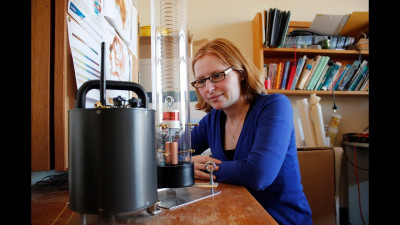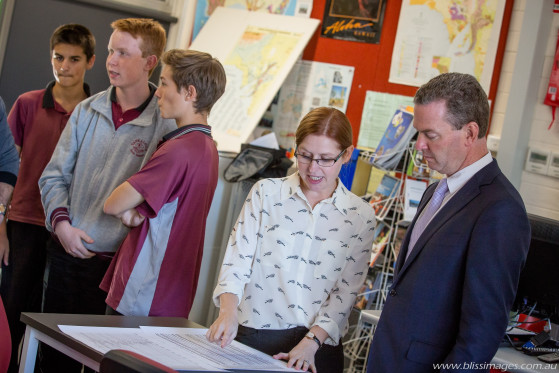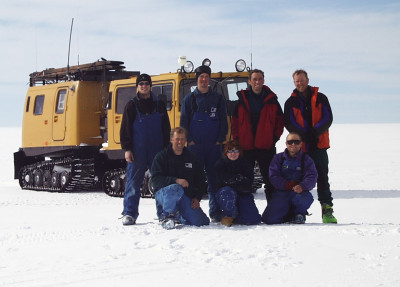Working at the boundary of science and impact
As Head of Research at Toka Tū Ake EQC, Dr Natalie Balfour works at the interface of science and impact, directing the agency’s up to $20 million annual investment in science. For International Day of Women and Girls in Science, Natalie reflects on how funding agencies like Toka Tū Ake support researchers to deliver impact from their science.
Toka Tū Ake EQC Head of Research, Dr Natalie Balfour, has loved geoscience for as long as she can remember.

Natalie has loved geoscience for as long as she can remember
A naturally curious child, she was most fascinated by the world outside her window. “It seemed to be the environment and its impact on us that sparked the most questions in me.”
In high school, she was nicknamed ‘Nat Hazard’ after a cartoon character in her much-loved geography textbook.
When it was time for enrol in university, Natalie chose geology (“because I thought it was interesting”) and computer science (“because I also needed to make money”). But passion quickly won out over practicality, and geoscience became the focus of her degree.
Natalie went on to do her master’s under Professor John Townend at Victoria University of Wellington, a Toka Tū Ake fellow at the time.
“It’s funny to think that my master’s was funded by Toka Tū Ake, and that experience really shifted the focus of my career towards natural hazards.”
Following a stint as a researcher at Geoscience Australia, Natalie moved to Canada to do her PhD in geophysics and seismology at University of Victoria in British Columbia. She came back to Australia to do a postdoctoral fellowship at Australian National University.

Natalie helped to deliver the Australian Seismometers in School programme, pictured here with a Minister
“I was trying to understand what caused the shallow, sharp earthquakes that can be really damaging to people and property – especially because they are often unexpected in places like Australia.”
Science to impact
By the time her fellowship ended, Natalie knew she wanted to work in the interface of where science meets people, so she joined GNS Science.
After several years and various roles there, Natalie came to Toka Tū Ake to head up its Research team. Every year, Toka Tū Ake invests up to $20million in natural hazards research, and Natalie helps decide where that money goes.
“I love supporting scientists to translate their research into action. It’s really great to see science being used to influence change – from government policies, to how we ready ourselves for future events, reduce risk and help people understand hazards around them.”

Natalie (bottom centre) doing field work in Antarctica
Natalie says that funding agencies play a key role in directing research towards impact because they understand the really pressing problems in society and what information, data, evidence is needed to solve them. Meanwhile, researchers are experts in their fields and understand what’s possible and what approaches can be taken to meet those needs.
“Our team has really good relationships with researchers working in natural hazards and maintain an open two-way dialogue about what those problems are. More and more, we see researchers coming to us proactively with ideas and asking advice on how their projects can be made most useful to end-users, and that’s really encouraging.”
Finding balance
At the same time as there is a shift towards impact-focussed research, there’s another promising shift in gender balance – but it’s not there yet.
“There are still not enough female research leaders in academia, especially in STEM subjects. I think that will change over time, but it helps if the whole academic ecosystem provides an environment where women can thrive.”
Funding agencies like Toka Tū Ake have a role to play in ensuring funding applications are assessed equitably, Natalie adds.
Word of advice
Her one piece of advice for women interested in breaking into a male-dominated sector like academia? “Stay true to who you are.”
It’s a lesson she learned trying to keep up with the male geologists in the field, doing the physical field tasks and doing everything she could to fit in, rather than focussing on the unique and equally valuable skills that she brings.
“It’s great to learn from people you admire, but don’t try to be someone else. When you are true to your own values and who you are, you can guide people from a more authentic place.“